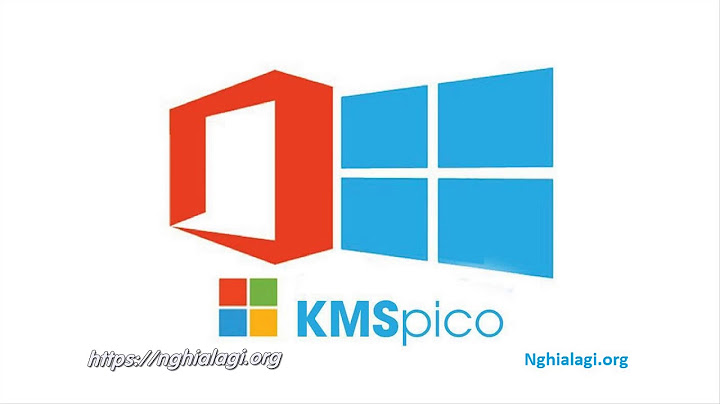This product covers the International portion content for the following state(s): AL, AK, AZ, AR, CA, CO, CT, DE, DC, FL, GA, HI, ID, IL, IN, IA, KS, KY, LA, ME, MD, MA, MI, MN, MS, MO, MT, NE, NV, NH, NJ, NM, NY, NC, ND, OH, OK, OR, PA, PR, RI, SC, SD, TN, TX, UT, VT, VA, WA, WV, WI, WY AL AK AZ AR CA CO CT DE FL GA HI ID IL IN IA KS KY LA ME MD MA MI MN MS MO MT NE NV NH NJ NM NY NC ND OH OK OR PA RI SC SD TN TX UT VT VA WA WV WI WY DC Alabama
- 2015 International Building Code (IBC)* – Building
- 2015 International Residential Code (IRC) – Residential
- 2015 International Plumbing Code (IPC)* – Plumbing
- 2014 National Electrical Code* – Electrical
- 2015 International Mechanical Code (IMC)* – Mechanical
*Alabama has no mandatory statewide building code. However, many local jurisdictions have adopted the building codes specified by the Alabama Building Commission. For residential construction, ADECA specifies the 2015 edition of the IRC for adoption by jurisdiction in state, should they decide to adopt a code. Alaska
- 2012 International Building Code (IBC) – IBC
- 2012 Uniform Plumbing Code (UPC) – 2012 UPC
- 2017 National Electrical Code (NEC) – NEC
- 2012 International Mechanical Code (IMC) – IMC
Alaska adopts a set of statewide codes but defers enforcement to some local jurisdiction. Alaska adopts a set of statewide codes but defers enforcement to some local jurisdiction. Arizona
- 2009 International Building Code (IBC)* – Building
- 2009 International Residential Code (IRC)* – Building/Residential
- 2009 International Plumbing Code (IPC)* – Plumbing
- National Electrical Code* – Electrical
- International Mechanical Code (IMC)* – Mechanical
*No statewide code. The State Fire Marshal lists 2009, IBC, IRC, IPC, IMC and the 2008 NEC as the codes for factory construction. Local towns have adopted the 2012 edition of the I-Codes and/or prior editions with amendments. Arkansas
- 2012 Arkansas Fire Prevention Code* (Building) – Based on 2012 International Building Code (IBC)
- 2012 Arkansas Fire Prevention Code* (Building/Residential) – Based on 2012 International Building Code (IBC)
- 2012 Arkansas Plumbing Code* (Plumbing) – Based on 2012 International Plumbing Code (IPC)
- Arkansas National Electrical Code* – Based on 2014 National Electrical Code**
- 2013 Arkansas Mechanical Code* – Based on 2009 International Mechanical Code (IMC)
* State minimum code – Adoption is by local authorities ** a) Amended the NEC to eliminate AFCIs in kitchen and laundry rooms; b) Also, adopted Article 691 of the 2017 NEC, which covers requirements for large scale PV electric power production. California
- 2019 California Building Code (CBC) – Based on 2015 International Building Code (IBC)
- 2019 California Residential Code (CRC) – Based on 2015 Residential Building Code (IRC)
- 2019 California Plumbing Code – Based on 2015 Uniform Plumbing Code (UPC)
- 2019 California Electrical Code – Based on 2014 National Electrical Code (NEC)
- 2016 California Mechanical Code – Based on 2015 Uniform Mechanical Code
- Wildfire Prevention – Chapter 7A of CBC State Fire Marshal
*California has a uniform statewide building code. Colorado
- 2012 International Building Code (IBC) – Building
- 2014 National Electrical Code – Electrical
*No statewide code. Colorado state has adopted the 2012 I-codes for state buildings. Local towns have adopted the 2012 edition of I-Codes or prior editions with their own amendments. Connecticut
- 2018 State Building Code – Based on 2015 International Building Code (Amended)
- 2018 State Building Code – Based on 2015 International Residential Code (Amended)
- 2018 State Building Code – Based on 2015 International Plumbing Code (Amended)
- 2018 State Building Code – Based on 2017 National Electrical Code (NFPA 70) (Amended)
- 2018 State Building Code – Based on 2015 International Mechanical Code (Amended)
Delaware
- 2018 State of Delaware Plumbing Code – Based on 2018 International Plumbing Code
*Delaware has no mandatory statewide building code covering all building construction in state. However, some local jurisdictions may have adopted different editions of I-Codes. Administered by Delaware Health and Social Services Department Florida
- 2017 Florida Building Code (6th edition) – Based on 2015 International Building Code
- 2017 Florida Building Code (6th edition) – Based on 2015 International Residential Code
- 2017 Florida Building Code (6th edition) – Based on 2015 International Existing Building Code
- 2017 Florida Building Code (6th edition) – Based on 2015 International Plumbing Code
- 2017 Florida Building Code – Building (Ch. 27) / 2017 Florida Building Code Residential (Ch. 34)
- 2011 National Electrical Code (NFPA 70) – Based on 2011 National Electrical Code (NFPA 70A)
- 2017 Florida Building Code (6th edition) – Based on 2015 International Mechanical Code
- The 2017 Florida Building Code (6th edition) will be effective December 1, 2017
Georgia
- GA State Minimum Standard Building Code – Based on 2012 International Building Code – Building
- GA State Minimum One and Two Family Dwellings Code – Based on 2012 International Residential Code – Building/Residential
- GA State Minimum Standard Plumbing Code – Based on 2012 International Plumbing Code – Plumbing
- GA State Minimum Standard Electrical Code – Based on 2017 National Electrical Code
- GA State Minimum Standard Mechanical Code – Based on 2012 International Mechanical Code
Georgia has a statewide building code covering all building construction in the state. However, enforcement of the code is up to local jurisdictions. Hawaii
- 2006 International Building Code (IBC)
- 2006 International Residential Code (IRC)
- 2012 State Plumbing Code (UPC)
- 2017 National Electrical Code (NFPA 70)
Administrative Rules Title 11, Chapter 39, Air Conditioning and Ventilating
The above codes are minimum statewide building codes to be adopted. Counties and jurisdictions may adopt and enforce a building code. Idaho
- 2018 International Building Code (IBC)
- 2018 International Residential Code (IRC)
- Idaho State Plumbing Code – Based on 2015 Uniform Plumbing Code (IAPMO)
- 2017 National Electrical Code (NEC) – Based on 2017 NFPA 70
- 2018 International Mechanical Code (IMC)
The above codes are the minimum statewide building codes to be adopted throughout Idaho. Local jurisdictions may adopt and enforce a building code. Illinois
- Building – No statewide code
- Residential – No statewide code
- Plumbing – Illinois Plumbing Code
- Electrical – No statewide code
- Mechanical – No statewide code
No statewide building code. Only plumbing code is enforced statewide. Life Safety Code (NFPA 101) is enforced throughout the state by the state fire marshal and local jurisdictions. Indiana
- 2014 – Indiana Building Code – Based on 2012 edition of the IBC
- 2020 – Indiana Residential Code – Based on 2018 edition of the IRC
- 2012 – Indiana Plumbing Code – Based on 2006 edition of the IPC
- 2009 – Indiana Electrical Code – Based on 2008 NFPA 70
- 2014 – Indiana Mechanical Code – Based on 2012 edition of the IMC
The above codes are the minimum statewide building codes to be adopted throughout Indiana. Indiana State reviews construction drawings and conducts inspection of certain non-residential structures throughout the state. In parts of the state, residential one- and two-family dwellings may be constructed without any plan review or inspection. Iowa
- 2015 International Building Code (IBC) – State Building Code
- 2015 State Plumbing Code (UPC) – State Residential Code
- 2015 Uniform Plumbing Code (UPC) – State Plumbing Code
- 2017 National Electrical Code (NEC) – State Electrical Code
- 2015 International Mechanical Code (IMC) – State Mechanical Code
No statewide building code. Iowa has adopted the above set of codes for construction of state-owned buildings. Local jurisdictions may adopt a building code. Kansas
- Building – 2006 International Building Code- Based on 2006 IBC & 1997 Uniform Building Code- Based on 1997 UBC
- Residential – No statewide code
- Plumbing – No statewide code
- Electrical – No statewide code
- Mechanical – No statewide code
No mandatory statewide building code (home rule state). Local jurisdictions may adopt a building code but cannot be less stringent than the codes listed by the Office of State Fire Marshal. Kentucky
- 2018 Kentucky Building Code – Based on 2015 IBC*
- 2018 Kentucky Residential Code – Based on 2015 IRC
- 2013 Kentucky Plumbing Code – Based on 2012 IPC
- 2014 National Electrical Code – Based on 2014 NFPA 70
- 2013 Kentucky Mechanical Code – Based on 2012 IMC
The above codes are the minimum statewide building codes to be adopted throughout Kentucky. Kentucky Division of Code Enforcement reviews construction design drawings and conducts inspection of certain non-residential structures throughout the state. Residential one- and two-family dwellings in Kentucky may be constructed without any plan review or inspection. * Mandatory Statewide Code Louisiana
- Louisiana State Uniform Construction Code – Based on 2015 International Building Code
- Louisiana State Uniform Construction Code – Based on 2015 International Residential Code
- Louisiana State Uniform Construction Code – Based on 2015 International Existing Building Code
- Louisiana State Uniform Plumbing Code – Based on 2015 International Plumbing Code
- Electrical Code – Based on 2014 National Electrical Code (NFPA 70)
- Louisiana State Uniform Mechanical Code – Based on 2015 International Mechanical Code
Maine
- Maine Uniform Building Code – Based on 2015 International Building Code
- Maine Uniform Building Code – Based on 2015 International Residential Code
- Maine State Plumbing Code – Based on 2015 Uniform Plumbing Code
- Maine State Electrical Code – Based on 2017 National Electrical Code
Maine has a state building code; however, towns with a population less than 4,000 can choose not to enforce the code. Maryland
- 2018 International Building Code (IBC)* – Building
- 2018 International Residential Code (IRC)* – Building/Residential
- 2015 National Standard Plumbing Code* – Plumbing
- 2018 National Electrical Code (NEC) – Electrical
- 2018 International Mechanical Code (IMC)* – Mechanical
Maryland has a mandatory statewide building code covering all building construction in state. However, many local jurisdictions may adopt local amendments to these codes (exceptions, sprinkler requirements and weakening energy conservation and efficiency requirements.) 2015 editions of the I-codes were adopted by the state on January 1, 2016. Massachusetts9th Edition of MA Building Code* – Based on 2015 International Building Code (IBC) 9th Edition of MA Building Code* – Based on 2015 International Residential Code (IRC) MA Plumbing Code – Based on 2009 International Plumbing Code (IPC) 2017 National Electrical Code (NEC) – Based on 2017 NFPA 70 9th Edition of MA Building Code* – Based on 2015 International Mechanical Code – Mechanical *Effective January 2018 Michigan
- 2015 Michigan Building Code – 2015 IBC
- 2015 Michigan Residential Code – 2015 IRC
- 2015 Michigan Plumbing Code – 2015 IPC
- Michigan Electrical Code – 2014 NFPA 70
- 2015 Michigan Mechanical Code – 2015 IMC
* State minimum code – Adoption is by local authorities Minnesota
- 2020 – Minnesota Building Code – Based on 2018 IBC
- 2020 – Minnesota Residential Code** – Based on 2018 IRC
- 2012 – Minnesota Plumbing Code – Based on 2012 Uniform Plumbing Code (UPC)
- 2017 – National Electrical Code (NEC) – Based on 2017 NFPA 70
- 2020 – Minnesota Mechanical Code – Based on 2018 IMC
* State minimum code- Adoption is by local authorities. Minnesota codes are the minimum state-recommended building codes. However, in large parts of the state the code is enforced only by certain cities and townships. **New homes built after January 24, 2015, that have a floor area of 4500 square feet or more are required to have an automatic fire sprinkler system. MississippiState buildings are built to the 2012 I-Codes, but other building as stated below: - Building – One of the last 3 editions of the International Building Code (IBC)*
- Building/Residential – One of the last 3 editions of the International Residential Code (IBC)*
- Plumbing – A Plumbing Code To be Determined
- An Electrical Code To be Determined
- A Mechanical Code To be Determined
- *Mississippi has a state-adopted building code covering all building construction in state. However, local jurisdictions may opt-out of the requirement within 120 days of August 1, 2014.
Missouri
- Building – No state code
- Building/Residential – No state code
- 2012 International Plumbing Code (IPC)* – Plumbing
- 2012 International Mechanical Code (IMC)* – Mechanical
* Missouri has no mandatory state building code. State government buildings are to be built to the 2012 IBC. Local jurisdictions throughout the state may have adopted different editions of I-Codes. Montana
- 2012 International Building Code (IBC) – 2012 IBC
- 2012 International Residential Code (IRC)** – 2012 IRC
- 2012 Uniform Plumbing Code (UPC) – 2012 UPC
- 2014 National Electrical Code (NEC) – 2014 NFPA 70
- 2012 International Mechanical Code (IMC) – 2012 IMC
*State minimum code – Adoption is by local authorities ** Adoption and enforcement of residential code is not mandatory. Nebraska
- 2018 – International Building Code (IBC)
- 2018 – International Residential Code (IRC)
- State Electrical Act – Based on 2017 NEC – Electrical
Nebraska has designated these codes for local adoption. Local jurisdiction may adopt a building code. Nevada
- 2012 – International Building Code (IBC) – Building
- 2012 – Uniform Plumbing Code – Plumbing
- 2011 – National Electrical Code – Electrical
- 2012 – Uniform Mechanical Code – Mechanical
- 2009 or 2012 – International Wildland Urban Interface Code (IWUIC) – Wildfire Prevention
The office of State Fire Marshal is enforcing the inspection of schools, health care facilities, state buildings (fire protection only) and commercial buildings in rural areas. Residential dwelling construction complies with local jurisdictions which have adopted a building code. New Hampshire
- New Hampshire Building Code Building – Based on the 2015 International Building Code
- New Hampshire Building Code ( Residential Code) – Based on the 2015 International Residential Code
- New Hampshire Building Code – Based on the 2015 International Plumbing Code
- New Hampshire Electrical Code – Based on the 2017 National Electrical Code (NFPA 70)
- New Hampshire Building Code – Based on the 2015 International Mechanical Code
*Enforcement of the building code is not mandatory through the State. New Jersey
- 2018 International Building Code (IBC) – Building Subcode*
- 2018 International Residential Code (IRC) – One- and Two-family Dwelling Subcode*
- 2018 National Standard Plumbing Code – Plumbing Subcode*
- 2017 National Electrical Code (NEC) – Electrical Subcode*
- 2018 International Mechanical Code (IMC) – Mechanical*
*New Jersey codes are enforced statewide. New Mexico
- 2015 – New Mexico Commercial Building Code – Based on 2015 IBC
- 2015 – New Mexico Residential Building Code – Based on 2015 IRC
- 2015 – New Mexico Plumbing Code (IPC) – Based on 2015 UPC
- 2017 – New Mexico Electrical Code – Based on 2017 NFPA 70
- 2015 – New Mexico Mechanical Code – Based on 2015 UMC
New Mexico construction codes are mandatory statewide codes. New York
- 2020 Building Code of New York State – 2018 International Building Code
- 2020 Residential Code of New York State – 2018 International Residential Code
- 2020 Plumbing Code of New York State – 2018 International Plumbing Code
- 2020 New York Electrical Code of New York State** – 2017 National Electrical Code (NFPA 70)
- 2020 Mechanical Code of New York State – 2018 International Mechanical Code
* Enforcement of the code is mandatory throughout the State, except New York City adopts and enforces a separate and a different edition of the building code ** 2020 NY State Electrical Code will be in effect May 17, 2020 North Carolina
- 2018 N. Carolina State Building Code – Based on 2015 International Building Code
- 2018 N. Carolina State Building Code (Residential Code) – Based on 2015 International Residential Code
- 2018 N. Carolina Plumbing Code – Based on 2015 International Plumbing Code
- 2017 N. Carolina Electrical Code – Based on 2017 National Electrical Code (NFPA 70)
- 2018 N. Carolina Mechanical Code – Based on 2015 International Mechanical Code
North Carolina codes are enforced statewide. North Dakota
- 2020 – International Building Code (2018 IBC) – Building
- 2020 – International Residential Code (2018 IRC) – Building/Residential
- 2020 – North Dakota State Building Code – Mechanical
- State Plumbing Code – State written – Plumbing
- State Electrical Code – Based on 2014 NEC
- Dakota has designated these codes for local adoption. Local jurisdictions may adopt a building code.
Ohio
- Ohio Building Code – 2015 IBC
- 2019 Ohio Residential Code – 2018 IRC
- Ohio Plumbing Code – 2015 IPC
- Ohio Mechanical Code – 2015 IMC
- 2011 National Electrical Code (NEC) – 2011 NFPA 70
Ohio has mandatory statewide codes. Oklahoma
- 2015 International Building Code – Building (2015 IBC)
- 2015 International Residential Code – Residential (2015 IRC)
- 2015 International Plumbing Code – Plumbing (2015 IPC)
- 2014 National Electrical Code – Electrical (2014 NFPA 70)
- 2015 International Mechanical Code – Mechanical (2015 IMC)
*The above codes are the minimum statewide building codes to be adopted throughout Oklahoma; however, enforcement is not mandatory. Oregon
- 2019 – Oregon Structural Specialty Code – Based on 2018 IBC – Building
- 2021 – Oregon Residential Specialty Code – Based on 2018 IRC – Building/Residential
- 2021 – Oregon Plumbing Specialty Code – Based on 2021 UPC
- 2021 – Oregon Electrical Specialty Code – Based on 2020 National Electrical Code (NEC)
- 2019 – Oregon Mechanical Specialty Code – Based on 2018 International Mechanical Code (IMC)
Oregon has mandatory statewide building codes. Pennsylvania
- 2015 – International Building Code (IBC) – 2015 IBC – Building
- 2015 – International Residential Code (IRC) – 2015 IRC – Building/Residential
- 2015 – International Plumbing Code (IPC) – 2015 IPC – Plumbing
- 2014 – National Electrical Code (NEC) – 2014 NFPA 70 – Electrical
- 2015 – International Mechanical Code (IMC) – 2015 IMC – Mechanical
- 2015 – International Urban Wildland Interface Code – 2015 IUWIC – Wildfire Prevention
- Pennsylvania has mandatory statewide building codes.
Rhode Island
- State of Rhode Island Building Code SBC-1 Building – Based on 2015 International Building Code
- State of Rhode Island One and Two Family State Dwelling Code SBC-2 Building/Residential – Based on 2015 International Residential Code
- State of Rhode Island Plumbing Code SBC-3 Plumbing – Based on 2012 International Plumbing Code
- State of Rhode Island Electrical Code SBC-5 – Based on 2017 National Electrical Code (NFPA 70)
- State of Rhode Island Mechanical Code SBC-4 Mechanical – Based on 2015 International Mechanical Code
South Carolina2018 South Carolina Building Code – Based on 2018 International Building Code (IBC)* 2018 South Carolina Residential Code – Based on 2018 International Residential Code (IRC)* 2018 South Carolina Plumbing Code – Based on 2018 International Plumbing Code (IPC)* 2017 National Electrical Code (NEC) – Based on 2017 NFPA 70* 2018 South Carolina Mechanical Code – Based on 2018 International Mechanical Code (IMC)* * S. Carolina codes (with state modifications) are enforced statewide. South Dakota
- 2015 – International Building Code (IBC)
- 2015 Uniform Plumbing Code
- Wiring Bulletin of South Dakota – Based on 2020 NEC
- 2015 International Mechanical Code – 2015 IMC
*S. Dakota has designated the 2015 IBC for adoption throughout the state (effective March 2015). The code adoption and enforcement is left up to local jurisdictions, which can amend, modify or delete any portion of the IBC before adopting it. Requiring automatic fire sprinklers in single-family dwellings is prohibited. **No legislation mandating the residential code (IRC) or enforcement for adoption throughout the state. Tennessee2012 – International Building Code (IBC) – 2012 IBC – Building 2018 – International Residential Code (IRC) – 2018 IRC – Building/Residential 2012 – International Plumbing Code – 2012 IPC 2017 – National Electrical Code (NEC) – 2017 NFPA 70 – Electrical 2012 – International Mechanical Code (IMC) – 2012 IMC – Mechanical The above are state-designated building codes, however, local jurisdictions can either opt out (by the vote of the county legislative body) of enforcement or the State Fire Marshal grants them an exception. Some local jurisdictions may have adopted the latest editions of these codes but have amended certain critical safety requirements that have weakened the building code requirements. Texas
- *2012 International Building Code – Building (IBC)
- *2012 International Residential Code – Building/Residential (IRC)
- 2012 International Plumbing Code and 2012 International Residential Plumbing Code – Plumbing
- 2011 National Electrical Code – Electrical (NEC)
*Texas has a decentralized system and no statewide code. However, as of July 7, 2021, the state approved the 2012 IBC and the 2012 IRC for adoption by any jurisdiction. Utah
- Utah Uniform Building Code – 2018 IBC
- Utah Residential Code – International Residential Code (IRC) – 2015 IRC
- Utah Plumbing Code – 2018 International Plumbing Code (IPC)
- Utah Electrical Code – 2017 NFPA 70
- Utah Mechanical Code – 2015 IMC
Utah construction codes are mandatory statewide. Local jurisdictions may amend the codes with state approval. Vermont
- 2015 International Building Code (2015 IBC)
- 2012 International Plumbing Code (IPC)
- 2017 National Electrical Code (2017 NFPA 70)
There is no residential (i.e., one- & two- family dwelling) building code adopted or in effect in Vermont. Referenced made to NFPA 101. Virginia
- 2015 Virginia Construction Code – Based on 2015 International Building Code (IBC)
- 2015 Virginia Residential Code – Based on 2015 International Residential Code (IRC)
- 2015 Virginia Plumbing Code – Based on 2015 International Plumbing Code (IPC)
- 2015 Virginia Electrical Code – Based on 2014 National Electrical Code (NFPA 70)
- 2015 Virginia Mechanical Code – Based on 2015 International Mechanical Code (IMC)
Washington
- 2018 Washington State Building Code – 2018 International Building Code (IBC)
- 2018 Washington State Residential Code – 2018 International Residential Code (IRC)
- 2018 Washington State Plumbing Code – 2018 Uniform Plumbing Code
- 2020 National Electrical Code (NEC) – 2020 NFPA 70 – Electrical
- 2018 Washington State Mechanical Code – 2018 International Mechanical Code (IMC)
Washington State building codes are mandatory statewide. Local jurisdiction may amend the codes with the State Building Code Council approval. West Virginia
- 2015 – International Building Code (IBC)
- 2015 – International Residential Code (IRC)
- 2015 – International Plumbing Code (IPC)
- 2011 National Electrical Code (NEC) – Based on 2011 NFPA 70 – Electrical
- 2015 – International Mechanical Code (IMC)
West Virginia has designated these codes for local adoptions. Local jurisdictions may adopt a building code. The State Fire Marshal’s office reviews building plans for conformance to state fire code. | 




















